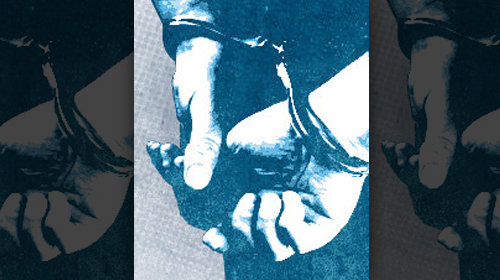
According to a recent New York Times , prosecutors and debt collectors are working together to threaten bad check writers with jail, even when no crime has been committed.
Here’s how it works. Someone writes a check to a merchant such as Wal-Mart (whether the person intends to defraud the merchant is irrelevant). The check bounces. The person then receives a letter signed by the local district attorney, on official letterhead, stating that the person can be sent to jail unless he or she agrees to pay the amount of the check, plus fees, plus the cost of a “financial accountability” class. The person is not informed that the letter is actually sent by a debt collection company or that no one at the district attorney’s office has reviewed the case. If the person agrees to take the class, the class participation fee is split between the debt collection company and the district attorney’s office.
Using the criminal justice system to financially exploit vulnerable Americans is not particularly new. But in the last several years the phenomenon has ballooned. In 2010, the ACLU published a report documenting several cases from Louisiana, Michigan, Ohio, Georgia and Washington in which indigent defendants were imprisoned for failing to pay legal debts. Noting that debtors’ prisons had been outlawed in 1983, the report noted that imprisoning poor people for failing to pay their debts is illegal, a waste of resources, and an attack on the integrity of the criminal justice system.
In addition, as recently by the Justice Policy Institute, courts are increasingly requiring pretrial defendants to post bail, sometimes in cases in which the individual could safely be released without bail if proper procedures were in place. Defendants who can’t afford to post cash bail must either languish in jail while awaiting trial, or seek the services of for-profit bail bonding companies whose profits derive exclusively from the practice of selling bonds to cash-strapped pretrial detainees.
Each of the practices described above raises troubling questions about the role of money in the American criminal justice system. But the practice of district attorneys helping debt collectors pursue money on behalf of businesses is particularly deplorable for several reasons. First, although these letters are printed on district attorney letterhead and threaten the recipient with jail, there has, in fact, been no criminal investigation. Prosecutors have a special professional obligation to refrain from pursuing charges that are not supported by probable cause. Using the imprimatur of the district attorney’s office to threaten an individual with jail when there has not even been an investigation, let alone a probable cause determination, shirks this responsibility and undermines the integrity of the office.
Second, some prosecutors claim that the letters are sent only to check writers who ignore merchants’ demands for payment, but there is no evidence any actual oversight is conducted to ensure this is the case. In fact, one prosecutor quoted in the article stated unequivocally that no one in her office reviews cases before the letters are sent. Finally, the debt collection companies that provide these “financial accountability” classes share a portion of their profits from class fees with district attorneys, suggesting that the district attorneys who participate in these programs may be motivated as much by financial kickbacks as by the pursuit of justice.
Court systems and jails are indeed overburdened, but there are other solutions. Prosecutors could shift some of attention they currently focus on low-level drug crimes (which do more to clog the system than any other category of crime) to fraudulent check-writing and other financial crimes. Businesses could refuse to accept checks. In the last few decades, we’ve seen more and more ways in which the criminal justice system exploits financially vulnerable Americans—we don’t need another one.
Learn more about prosecutorial misconduct: Sign up for breaking news alerts, , and .

